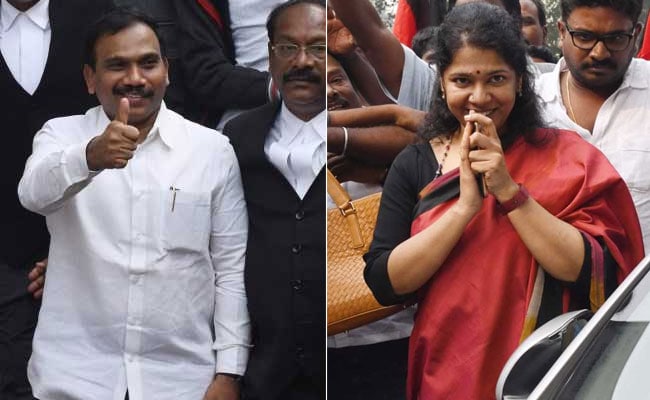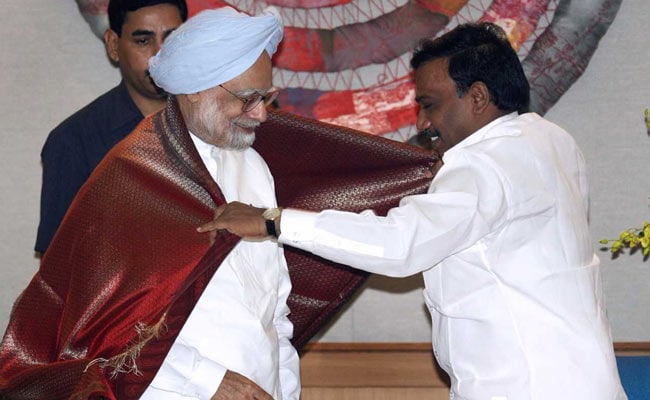There was no 2G scam.
At least not the 2G scam that was sold to us by a cabal of cynical TV journalists, fraudulent politicians, and ersatz anti-corruption crusaders. What I have always argued is that what we had on that occasion was a misapplication - not criminal, but unacceptable nevertheless - of long-standing rules. A Prime Minister whose government relied on the votes of the DMK had to cede control of the telecom ministry to the DMK, which then stayed within the law while altering procedures - such as when an application had to be submitted - in a manner that made it tougher for some applicants. This manipulation was clear to all who saw it, and deserved condemnation. It still deserves condemnation, and I condemn it.
But the scale and scope of the "scam" being claimed by the innumerate dramatis personae of that period - from Vinod Rai to Anna Hazare to more faces on news television than anybody cares to remember - was always imaginary. Lakhs of crores were not misappropriated. No, instead there was the sort of misuse of process that was common before the UPA, common during the UPA, and continues to be common now, even under a supposedly clean government. Of course there are no large-scale scams of the scale that was claimed for 2G under Narendra Modi! Because, it turns out, there weren't under Manmohan Singh either. At a stroke, the sole and solitary claim that Modi had to his running a better government than Manmohan stands extinguished.

Former telecom minister A Raja and M Kanimozhi of the DMK were acquitted today of charges in the 2G scam
And that's what the 2G "scam" was: public perception created by rumour, gossip and speculation.
It is entirely possible that this brave judgment will not survive. After all, the higher judiciary in India may justifiably feel called upon to preserve institutional credibility. The Supreme Court has already cancelled more than a hundred 2G licences, citing arbitrariness; at the same time it noticeably unburdened itself of criticism of a policy choice that was otherwise generally supposed to in be the domain of the executive. Nobody can speak as to the Supreme Court's future course of action, but it is rare indeed for any high institution in India to reverse itself in the manner the trial court judgment might imply to onlookers that it could. All that we commoners can repeat is the facts: that the 2G licence judgment penalised those who bought licences in good faith, that it created permanent uncertainty about the Indian policy environment globally, and that it added years-later judicial activism to the risk factors that investors consider. It is clear in retrospect that cancellation of licences had an effect on the investment climate, which is precisely what was warned at the time as well. The Indian economy is yet to recover not just from the cancellation, but also from the public hysteria and moral panic that marked the period. It is that which created policy paralysis and the investment crisis that continues to this day - not any supposed corruption.

The case became the centerpiece of allegations of egregious corruption on then Prime Minister Manmohan Singh's watch (File photo)
Second, what of accountability? Even if you believe that A Raja, as Telecom Minister, took the wrong calls, he should be held politically accountable for those calls - and he, his party, and its allies have been. What of accountability for those who built up this supposed scam, and put numbers with lots of zeroes to it? What of Vinod Rai, rewarded by those who benefited politically from the 2G scam hysteria with control of the banks board bureau and of Indian cricket? What of Anna Hazare, Arvind Kejriwal, Subramanian Swamy and the others who built careers on claiming that multi-billion dollar scams had taken place? What of the BJP and its leaders, who stalled parliament and have run endless election campaigns on the scam? This is not accountability such as the courts can provide. It is public opinion and the electorate that will have to decide.
I am not certain what they will decide. But what I am certain about is that history will not be kind to these forces of disinformation, who with willful ignorance or malice created a perception of an epochal, history-breaking, record-setting scam. Who will be held accountable for, in the words of the judge, "public perception created by rumour, gossip and speculation"? Somebody must.
(Mihir Swarup Sharma is a fellow at the Observer Research Foundation.)
Disclaimer: The opinions expressed within this article are the personal opinions of the author. The facts and opinions appearing in the article do not reflect the views of NDTV and NDTV does not assume any responsibility or liability for the same.


